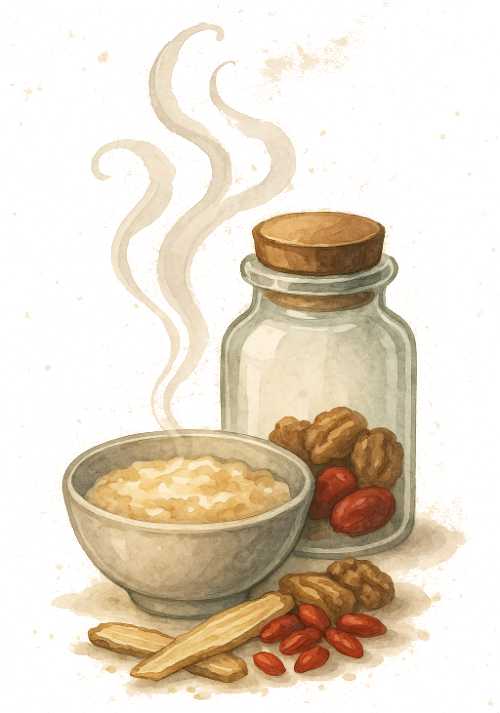Caring for the Caregiver:
TCM Support for Those Supporting Others
Caring for a loved one with Alzheimer’s or other chronic illness is one of the most demanding roles a person can take on. The emotional weight, the constant alertness, the disruption of sleep, and the quiet grief that accompanies gradual change—it all takes a toll. In Western settings, caregiver support is often limited to external resources like respite care or counseling. But traditional Chinese medicine (TCM) offers additional tools to care for the caregiver, helping to restore balance, reduce stress, and sustain long-term resilience.
TCM views stress, fatigue, and emotional depletion as signs of internal imbalance—not just emotional reactions, but real physiological concerns. In many cases, caregivers experience Spleen Qi Deficiency, marked by fatigue, digestive upset, or foggy thinking. Others may show signs of Heart Blood Deficiency, especially if insomnia, anxiety, or a sense of emotional flatness becomes frequent. Prolonged stress can also lead to Liver Qi Stagnation, which often shows up as irritability, frustration, or tightness in the chest or neck.
Treatment for caregivers is gentle, supportive, and tailored to their unique strain. Acupuncture may be used to calm the Shen (spirit), ease emotional tension, and restore energy without overstimulating. Sessions can offer a rare moment of stillness—a space where the caregiver is no longer responsible for anyone but themselves. For those unable to visit a clinic regularly, simple self-care practices can also help.
TCM encourages caregivers to take small steps that restore qi and strengthen the spirit. A short walk after meals, ten minutes of Qigong, or drinking warm, nourishing teas like jujube and longan can offer daily comfort. Establishing a regular sleep and eating schedule, even if modest, supports the spleen and protects against long-term depletion. Herbal formulas may also be prescribed to support energy, sleep, or emotional stability, especially during prolonged periods of caregiving.
Importantly, TCM acknowledges that emotional pain cannot always be “fixed.” It focuses instead on helping the body and mind stay soft, present, and steady. This includes practices like conscious breathing, acupressure for calming points, and mindfulness rooted in body awareness—not as luxuries, but as lifelines.
Caregivers often forget that they also need care. In Chinese medicine, the goal is not simply endurance but nourishment. Whether through acupuncture, herbs, gentle routines, or supportive presence, TCM offers ways to refill what is being slowly given away. It reminds us that healing is not only for the patient—it must extend to those who carry them through.
Vocabulary Guide
- Spleen qi deficiency (脾气虚 pí qì xū) – A pattern marked by fatigue, digestive weakness, and mental fog due to overwork or worry.
- Heart blood deficiency (心血虚 xīn xuè xū) – A condition in TCM involving poor sleep, restlessness, or emotional depletion.
- Liver qi stagnation (肝气郁结 gān qì yù jié) – Emotional or physical tension caused by unexpressed stress or frustration.
- Shen (神 shén) – The spirit or consciousness; associated with the heart and emotional stability.
- Qigong (气功 qìgōng) – A mind-body practice involving breath, posture, and intention to regulate and restore qi.


